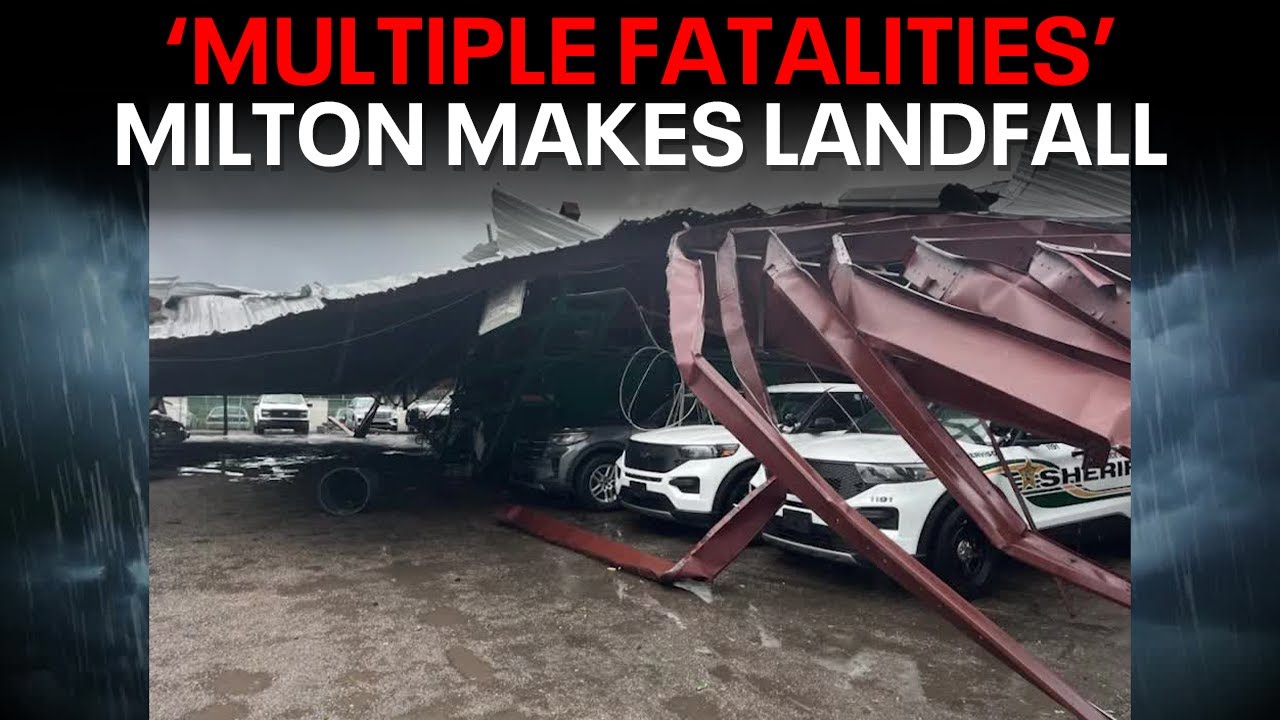As night descended, Florida’s Gulf Coast was hit by Hurricane Milton, triggering deadly tornadoes and severe flooding. Millions lost power, and several communities were left in ruins.

Hurricane Milton, a Category 3 storm, made landfall near Siesta Key in Sarasota County, Florida, around 8:30 p.m. on October 10. With winds exceeding 120 mph and torrential rainfall, the storm wreaked havoc across the region. Over 1.1 million homes and businesses were left without power, with Sarasota, Manatee, and Hardee counties bearing the brunt of the damage.

The Florida Division of Emergency Management (FDEM) turned to Facebook to urge residents to stay in their shelters and remain vigilant as the storm continued to rage.
Several tornadoes struck St. Lucie County, causing significant destruction and loss of life. Sheriff Keith Pearson reported “multiple fatalities” at the Spanish Lakes Country Club, a senior living community near Fort Pierce. Rescue teams are still combing through the debris in search of survivors, but the full death toll remains unclear.

Emergency responders have been working tirelessly in St. Lucie County, which experienced severe damage. Statewide, around 125 homes were destroyed, many of them in senior mobile home communities, according to FDEM Director Kevin Guthrie.
Governor Ron DeSantis noted that the storm led to 116 tornado warnings across the state, with 19 confirmed tornadoes so far, highlighting the vast scale of Hurricane Milton’s impact.

In St. Petersburg, the storm triggered catastrophic flooding, with more than nine inches of rain falling in just three hours. This once-in-1,000-year event also affected Tampa and Clearwater, prompting a flash flood emergency on October 9 by the National Hurricane Center.

At St. Petersburg’s Albert Whitted Airport, 16.61 inches of rain were recorded in a single day, creating hazardous conditions. Wind gusts reached 102 mph at Sarasota-Bradenton International Airport and 105 mph at Egmont Channel, as Hurricane Milton moved about 20 miles northeast of Sarasota, traveling east-northeast at 16 mph.

The National Weather Service issued warnings about life-threatening flash floods, noting that the rainfall in one day equaled the typical total for three months. Residents were urged to seek higher ground and avoid flood-prone areas.
State and local officials launched a large-scale emergency response, deploying rescue teams to the hardest-hit areas. Sheriff Pearson emphasized that “life safety” remained the top priority as rescue operations continued to locate people trapped in the aftermath.

Though Hurricane Milton weakened as it moved inland, it continued to pose a threat. Authorities stressed the importance of following official updates as Florida grapples with the storm’s devastating aftermath.

